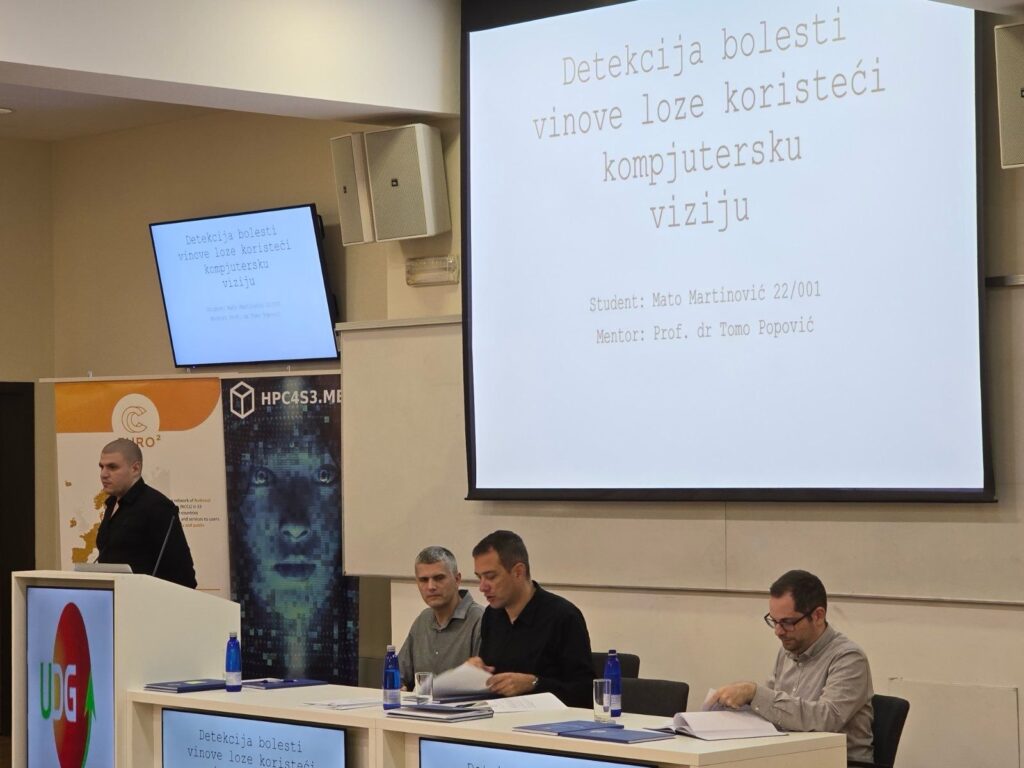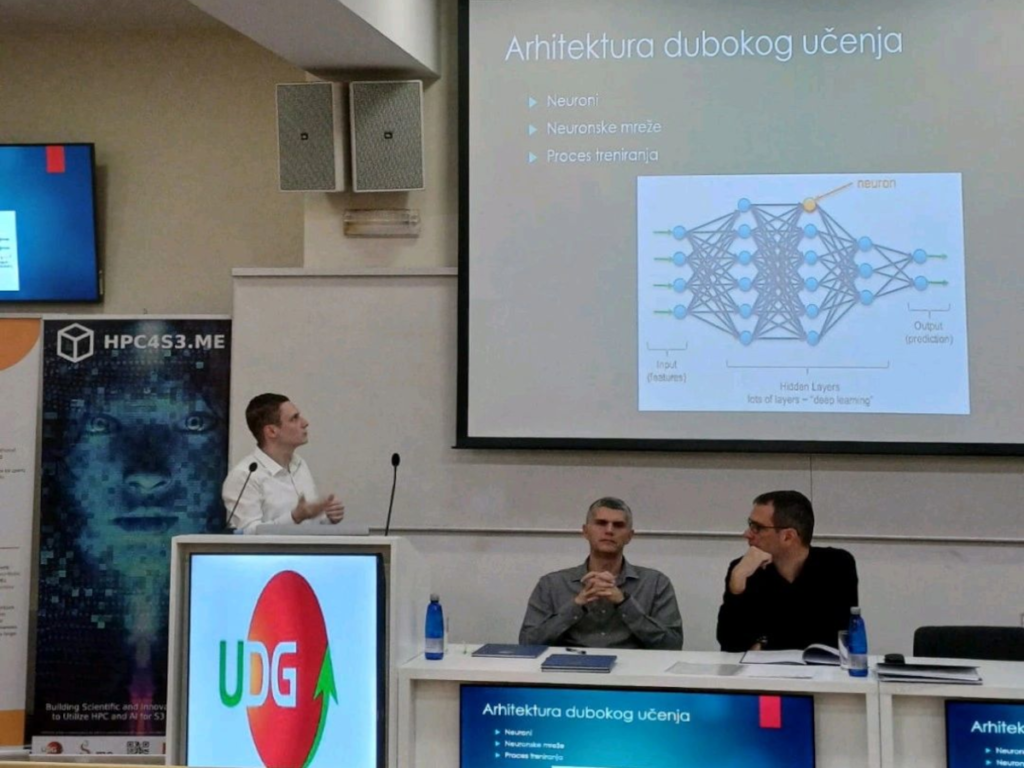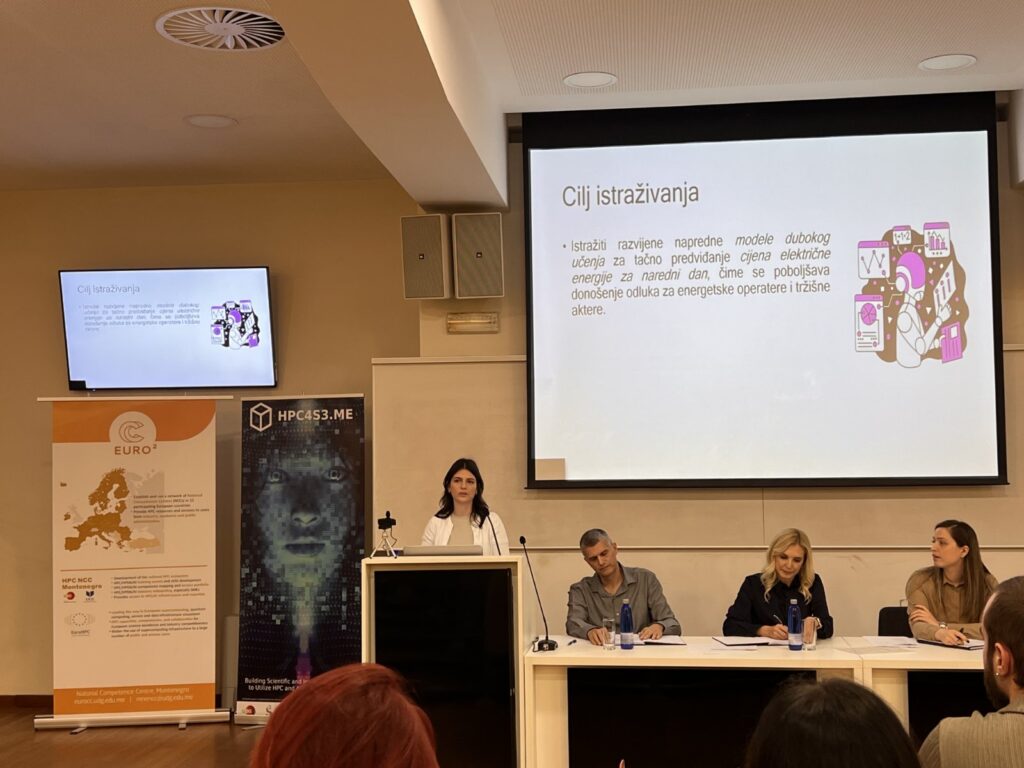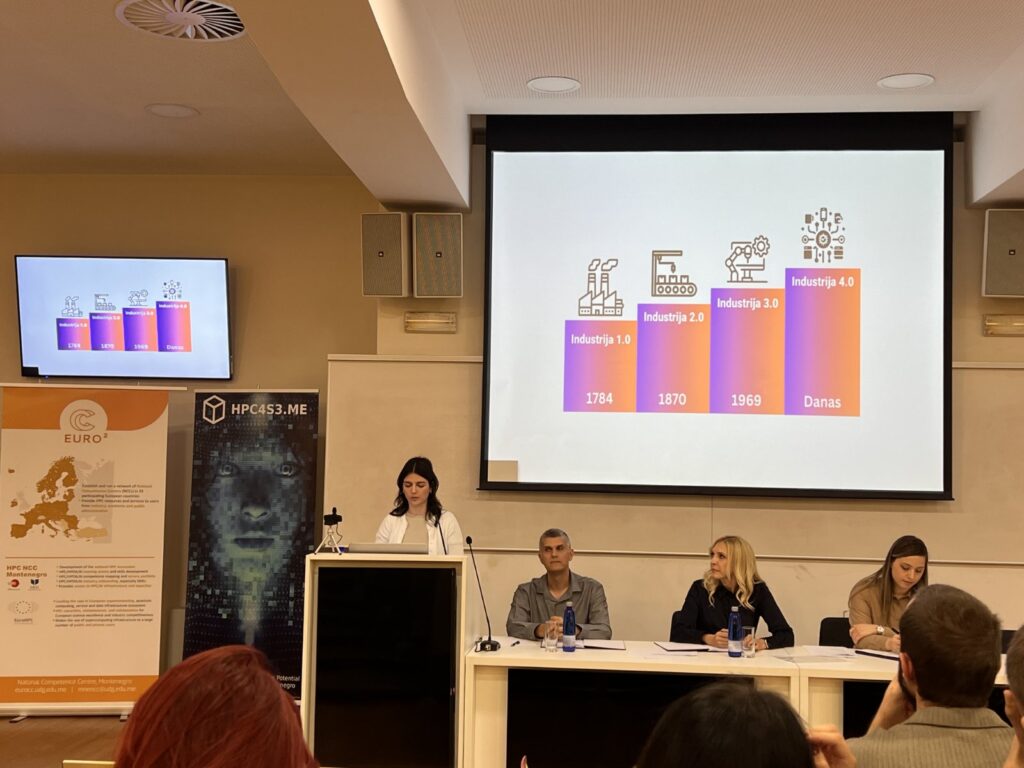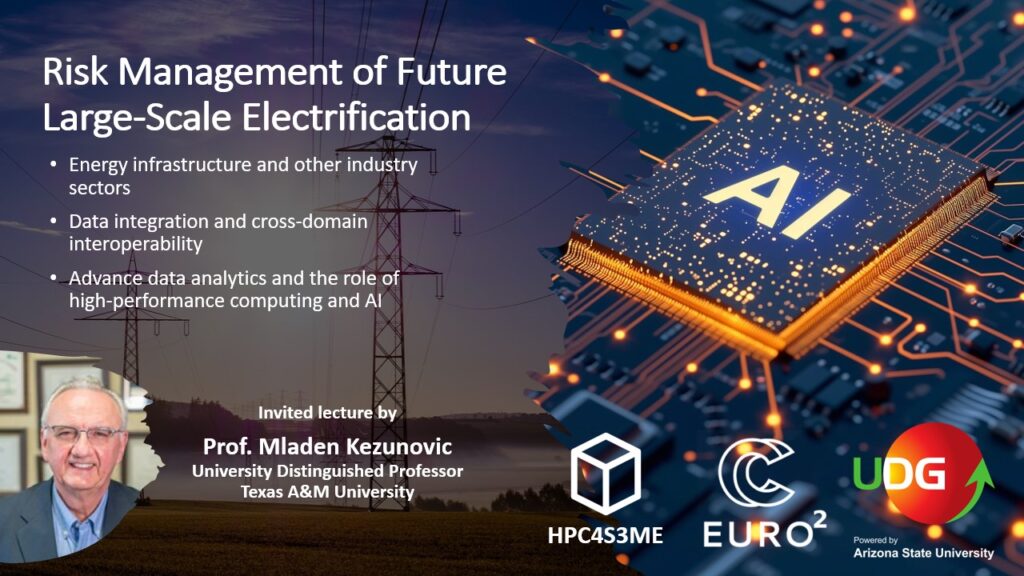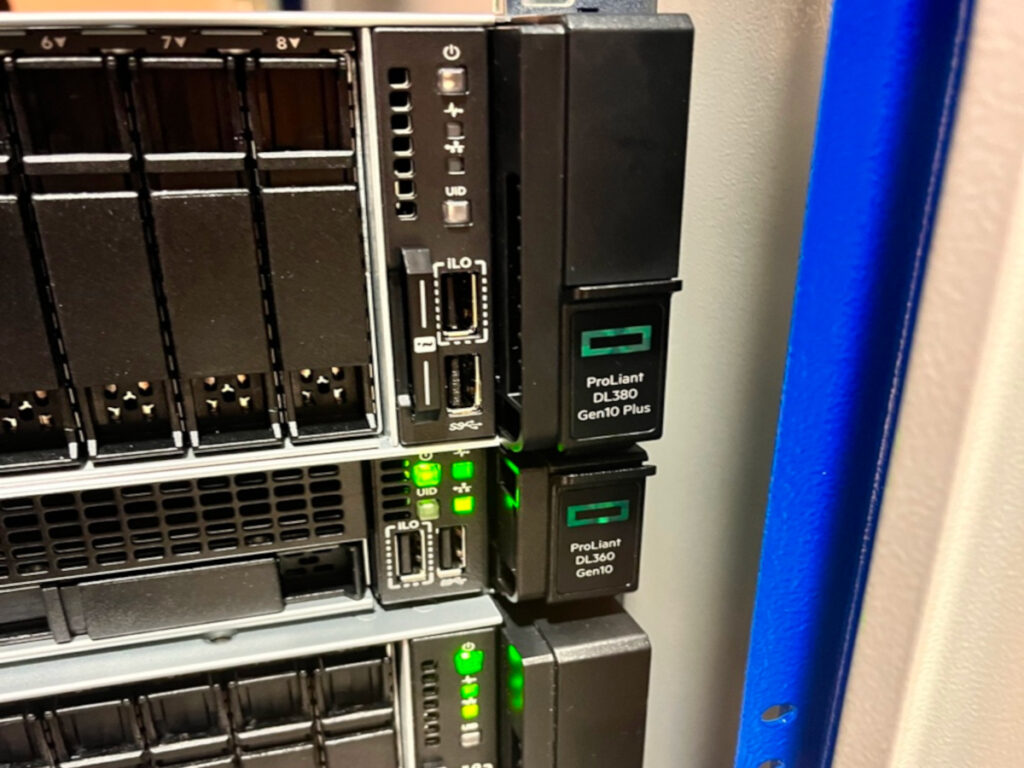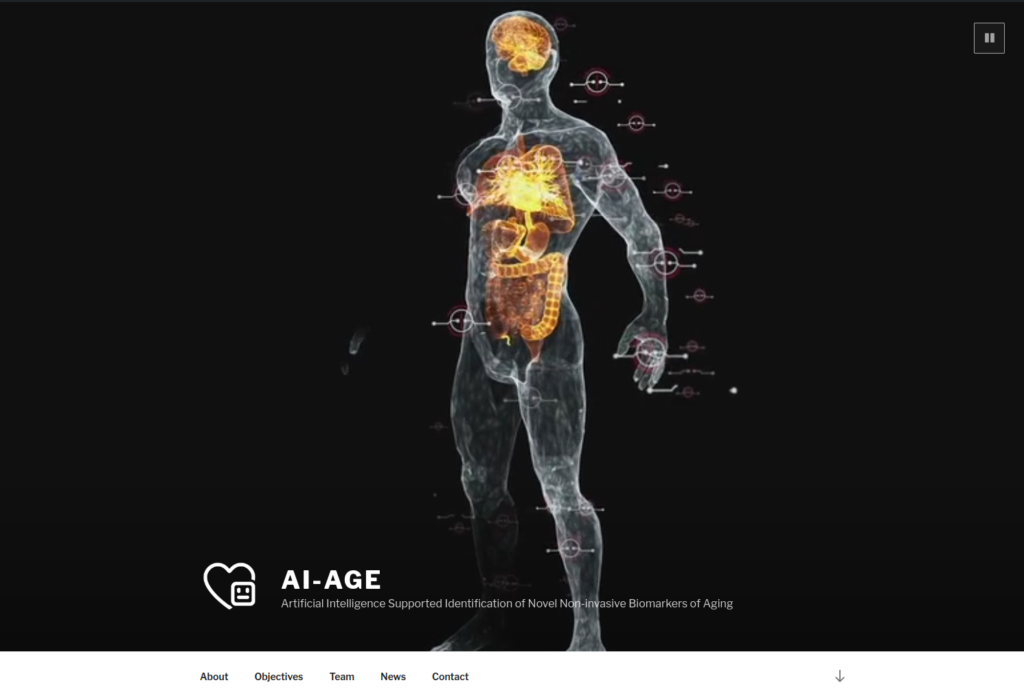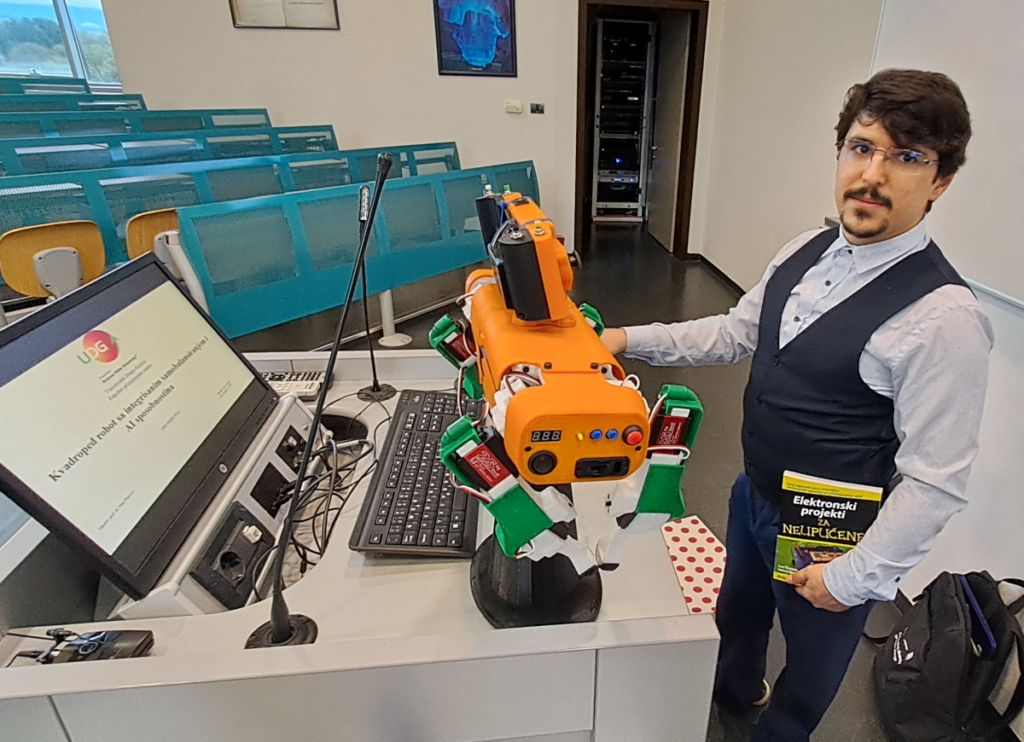Mr Mato Martinovic defended his MSc thesis on 23 octiber 2024. His research focused on detecting plant deseases for applications in vineyards. He was experimenting with HPC/AI and computer vision. He is one of the latest graduates from the AI master program created under EUROCC project and his mentoring was done with the support of EUROCC NCC Montenegro.
ABSTRACT – This research analyzes the use of computer vision in the field of viticulture. The thesis describes problems in viticulture, computer vision and its use in this field. The paper analyzed the performance of ResNet50, VGG16 and MobileNet models in the classification of diseases and grapevine species. The models achieved accuracy of 98.67%, 97.28%, and 98.72% on the original test data set, while on the extended one, they achieved 87.47%, 72.07%, and 86.64%, respectively, when classifying diseases. In species classification, the models achieved accuracies of 70%, 78% and 88% on the original test data set, and 66%, 51% and 72% on the extended one, respectively. The VGG-16 model had the largest difference in accuracy over extended data, while ResNet had the smallest decrease in accuracy in both cases, which implies that ResNet generalizes the data better. The paper presents the process of creating a platform that allows users to post an image and receive a prediction value through a mobile application.
